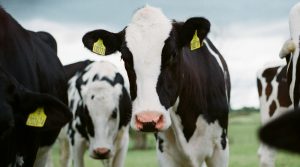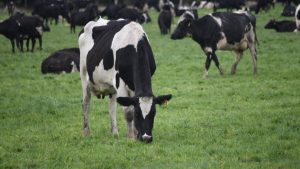
Key points:
Dairy farmers have been asked to vote on whether the service levy should be increased
The levy hasn’t changed for the last decade
Some farmers support an increase, but others were disappointed they couldn’t vote to reduce it
The levy is funded by farmers and managed by Dairy Australia to run research and marketing programs.
It has not changed since 2012, with farmers paying 2.8683 cents per kilogram of milk fat and 6.9914c/kg protein.
Now, farmers have been asked whether the levy should be increased, and by how much.
A 20 per cent rise was recommended by the Levy Poll Advisory Committee (LPAC), but not without controversy.
“The big picture items behind that recommendation are number one,” LPAC independent chair Ron Storey said.
“It’s ten years since it changed and there has been a 20 per cent plus erosion in the buying power of that levy.”
“Number two, the Australia Dairy plan unanimously signed off by the industry last year identified four or five big ticket items for the dairy industry to address if it was going to be successful.”
“If the industry’s going to have the investment available to address those issues it needs an increase.”
However, in the lead up to the poll, New South Wales dairy farmer Heath Cook and his Queensland counterpart Matthew Trace resigned from the levy poll committee after the group decided not to offer the option to farmers to reduce or remove the levy.
Instead, farmers have been given four options; increase the levy by 15 per cent, 20 per cent, 25 per cent or make no change to it at all.
No more money left to give
Finley dairy farmer Peter Middlebrook said in the face of rising inputs, he does not have money to spare to pay an increased levy.
“We’ve got costs going up again, diesel’s gone up, fertiliser’s gone up,” he said.
“We have had a little rise in the milk price, but it’s been offset by the cost of everything else.”
As a result, Mr Middlebrook said no change is the best decision for him and likely many others.
“I think the levy will probably stay the same,” he said.
“We weren’t given a choice to lower it or drop it altogether.
“I think a lot would [choose to lower the levy].”
Mr Middlebrook said with more and more farmers leaving the industry, those that remain are paying too much to fill the gap.
“Farmers are paying up to $60,000 a year and a lot of them can’t see any value in that at all,” he said.
“I think farmers don’t have any extra money in their pockets and they think they can spend their money more wisely then Dairy Australia can.”
Looking to the next generation
Tamworth dairy farmer Wes Brown said without further investment, changes the industry want to see won’t happen.
“I think probably a 15 per cent increase should justify employing someone to look after the dairy industry,” he said.
“If they can look after the industry and make it more viable for the younger generation coming through that’s what I want to see.”
Mr Brown said Dairy Australia is doing critical work to keep the industry viable.
“If we didn’t have Dairy Australia we wouldn’t have all the research and development that goes on,” he said.
“I’ve been in the industry all my life and I’ve never seen it like this before.
“The price of milk is good, the price of cattle is good, the weather is good.”
Mr Brown said if the high milk price remains in place, it will encourage the next generation to enter the industry.
20pc recommended for a reason
Phil Ryan is a dairy farmer in the Bega Valley and on the board of Dairy NSW.
He said he would vote for an increase but wants a review of all research programs.
“Both the NSW Farmers dairy committee and the board of dairy NSW have recommended a vote for the 20 per cent increase, and I will be voting that way,” he said.
Mr Ryan said an increase is justified as he’s confident he and many other farmers are getting a good return on the levy they pay.
“I can see the research that happens with Data Gene in breeding better cows and having better breeding values,” he said.
“So, I would suggest that most people are getting something just out of that. That pays for their levy.”
However, Mr Ryan acknowledged he had noticed the benefits as he was heavily involved in Dairy Australia’s research programs.
“I think Dairy Australia really needs to make it more clear that everyone is getting a return on that levy,” he said.
“I think reviewing their investments and publicising their results is one of the ways they could demonstrate that.
“That’s something that perhaps an increased levy could allow them to do more of and communicate it better to people.”























